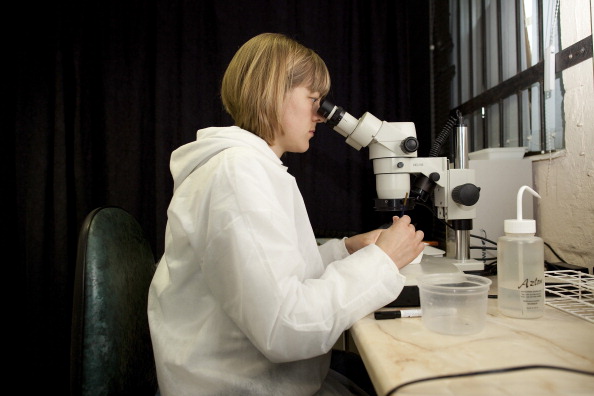How to Dress for a Biotechnology Job

Utilising organisms and living systems in order to create or develop useful products is called biotechnology. Mankind has been using biotechnology for thousands of years in a number of fields, like medicine, food production and agriculture.
Just like other types of scientists, biotechnologists do not put too much emphasis on formal dressing, nor do they have a particular dress code for work. During conferences or formal meetings, scientists do smarten up a bit, but they are not particularly concerned with their attire while working in the laboratory. Interestingly, in this field, being overdressed during a presentation can have a negative impact on seniors; for this reason, you are unlikely to find a biotechnologist wearing a formal suit at the job.
Instructions
-
1
Scientist’s cocoon
In top notch scientific organizations, where everyone is required to strictly adhere to safety rules, most of a biotechnologist's day on the job is spent wrapped up in the scientist’s cocoon - also known as the ‘white coat’ in common verbiage. Therefore, it hardly matters what you wear underneath the cocoon, since your clothes will barely be visible. This cocoon, along with the head cap and gloves, is necessary in order to protect scientists from harmful chemicals. -
2
Be casual
Most people in the modern world are extremely conscious about their appearance and attire, and aim to attract the attention of others. However, this attitude cannot be carried into a professional setting. If you are overly enthusiastic about your appearance and dress in the field of biotechnology, chances are high that you will not be taken seriously by your colleagues or seniors. Extreme attention to appearance will make you come across as someone who lacks focus and professionalism. Therefore, it is highly recommended that you wear casual clothes, or semi-formal outfits at most. Remember that no one will be able to see your attire under the cocoon anyway, so spending too much money and time in order to dress up well is simply not worth it. -
3
Be formal in public
If your job is such that you find yourself frequently addressing the wider public and media, it is recommended that you put some effort into looking sharp and presentable. This is probably the only occasion where you will be required to wear formal dresses, in order to make a strong impression on the public, and maintain the serious, dignified, and professional image of scientists. -
4
Shoes
Make sure your shoes are comfortable and do not start to hurt your feet by the end of your shift. Just like your dress, your shoes do not need to be formal if you are working in a laboratory.







